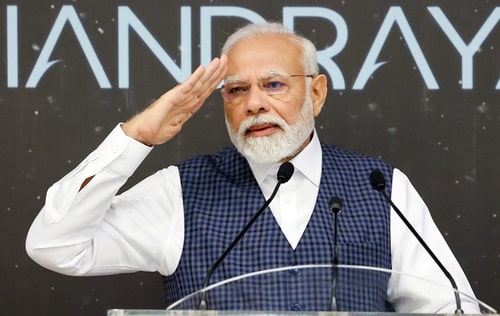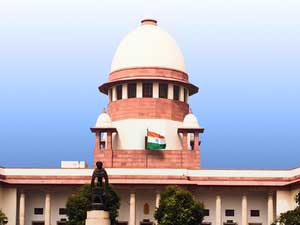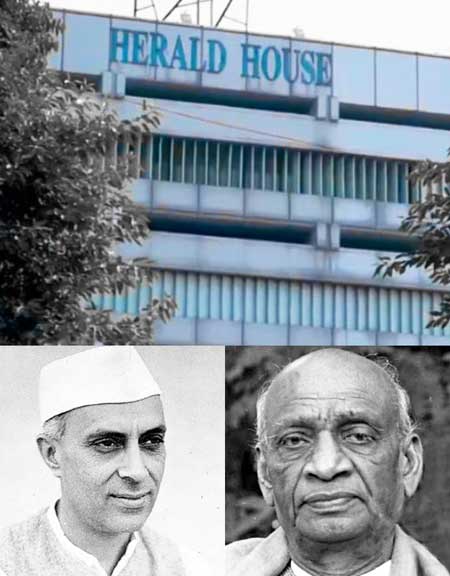Expanding the Chandrayaan series, the Union Cabinet on Wednesday approved the fourth mission to the Moon and also gave a green signal for the building of the first unit of the Bharatiya Antariksh Station (BAS) by 2028.
The Cabinet chaired by Prime Minister Narendra Modi approved Chandrayaan-4 to develop and demonstrate technologies to help astronauts return to Earth after successfully landing on the Moon.
The mission also aims to collect Moon samples, bring them back safely and analyse them on Earth.
The “Chandrayaan-4 mission will achieve the foundational technologies capabilities eventually for an Indian landing on the Moon (planned by year 2040) and return safely back to Earth,” according to a Cabinet Communique.
“Major technologies that are required for docking/undocking, landing, safe return to Earth and also accomplish lunar sample collection and analysis would be demonstrated,” it added. Chandrayaan-3 successfully demonstrated the safe and soft landing of Lander on the tricky lunar surface. It established vital technologies and demonstrated capabilities that only a few other nations possess.
The ability to collect lunar samples and return them safely back to Earth remains the next challenge.
The Chandrayaan-4 mission is “planned for Rs 2,104.06 crore”, and the development of the spacecraft and its launch will be handled by ISRO.
The Cabinet said the “cost includes spacecraft development and realisation, two launch vehicle missions of LVM3, external deep space network support and conducting special tests for design validation, finally leading to the mission of landing on the Moon’s surface and safe return to Earth along with the collected lunar sample.”
The mission is expected to be “completed within 36 months of approval”, the Cabinet said.
Meanwhile, expanding the vision for the Indian space programme, the government had envisaged an Indian Space Station by 2035 and an Indian to land on the lunar surface by 2040.
Towards this goal, the Cabinet on Wednesday approved the development of the first module of BAS-1.
The Cabinet also revised the Gaganyaan Programme to include the scope of development and precursor missions for BAS, and factored an additional uncrewed mission.
“With a net additional funding of Rs 11,170 crore in the already approved programme, the total funding for Gaganyaan Programme with the revised scope has been enhanced to Rs 20,193 crore,” the Cabinet said.
“The target is to develop and demonstrate critical technologies for long duration human space missions,” it said.
Under the programme eight missions are envisaged -- four under the ongoing Gaganyaan Programme by 2026, and development of BAS-1, and another four missions for demonstration and validation of various technologies by December 2028.






New Act enacted to curb Waqf misuse, claims Tripura CM
Tripura Chief Minister Manik Saha on Thursday said that the Waqf (Amendment) Act 2025 has been passed in the Parliament, aiming to address allegations of misuse of Waqf properties by a section of leaders, misuse of Section 40, land grabbing, and other corruption.
DoNER Ministry facilitate in unlocking Manipur’s growth: Scindia
Union Development of North Eastern Region (DoNER) Minister Jyotiraditya Scindia on Thursday said that he is confident that his ministry would serve as a proactive facilitator in unlocking new opportunities and accelerating Manipur’s growth and development.
Bengal school jobs row: SC allows 'untainted' teachers to continue till fresh selection is over
The Supreme Court on Thursday allowed the "untainted" assistant teachers in West Bengal, whose appointments were cancelled due to large-scale irregularities in the 2016 selection process, to continue in their positions till fresh recruitment is completed.
Waqf Act row: No fresh appointments or de-notification of existing waqfs, Centre assures SC
The Supreme Court on Thursday recorded the undertaking given by the Union government that no fresh members would be appointed to waqf boards and the Central Waqf Council in terms of the Waqf (Amendment) Act, 2025, till the next date of hearing, and asked it to file its preliminary reply within seven days.
Patel's alarm, Nehru's ‘dismissal’: The origins of the National Herald storm
A series of letters exchanged between Sardar Vallabhbhai Patel and Jawaharlal Nehru in May 1950, as documented in the book Sardar Patel’s Correspondence, suggest that Patel expressed concerns to Nehru regarding the use of the ‘National Herald’ for fundraising purposes.
Kailash Manasarovar Yatra likely to resume soon: MEA
India and China continue to make progress on finalising the modalities to resume Kailash Manasarovar Yatra which can start soon, the Ministry of External Affairs (MEA) announced on Thursday.
Pakistan's reputation as epicentre of global terrorism will not diminish: MEA
Slamming Islamabad's attempts to distance itself from Tahawwur Hussain Rana, the mastermind of the deadly 26/11 Mumbai terror attacks, India on Thursday said that no matter how hard Pakistan tries, its reputation as the epicentre of global terrorism will not diminish.
India emerging as key player in global defence production: Rajnath Singh
Highlighting the growing production capabilities, Defence Minister Rajnath Singh said on Thursday that India today stands shoulder to shoulder with developed nations in critical areas such as missile technology (Agni, BrahMos), submarines (INS Arihant), aircraft carriers (INS Vikrant), AI, drones and cyber defence.